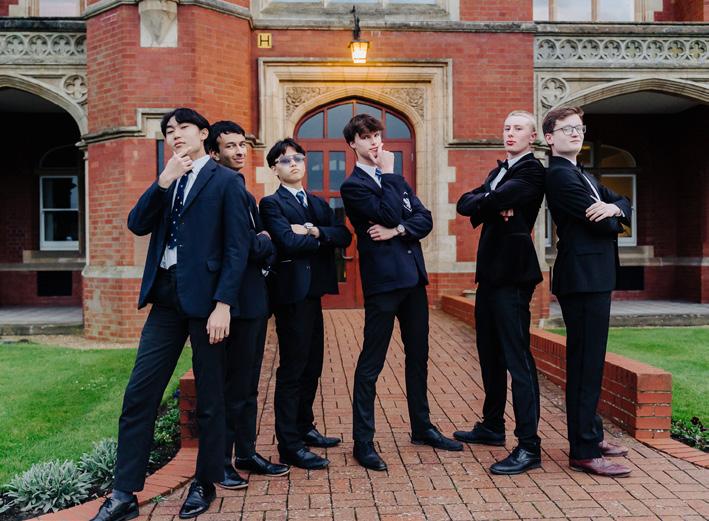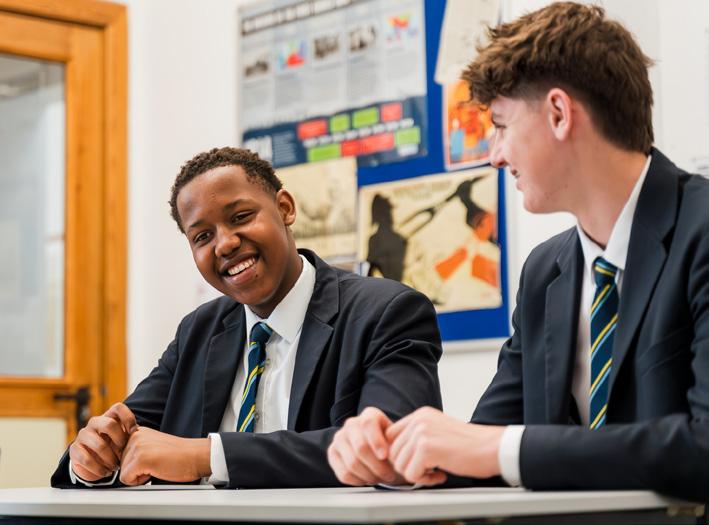Sixth Form handbook

2025 - 2026


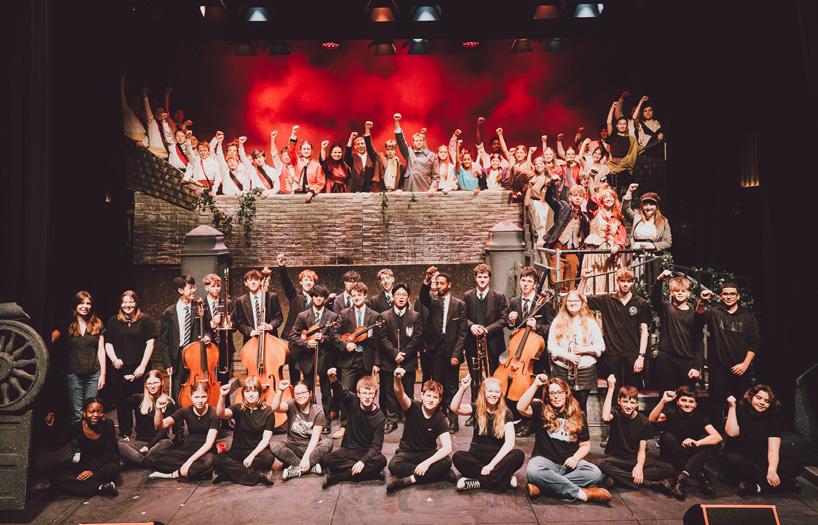




2025 - 2026





Dear boys,
The Sixth Form will become years at school upon which you will reflect with the most affection. Whilst this is still one school, and much of the next two years will feel familiar in many ways, and whether you have entered this school at Year 3 or Lower Sixth, you will find that the Sixth Form experience is special and distinct from any experience you have had so far. As a year group you will bond far more inclusively; you have been through the trials of GCSE together (whether here or elsewhere), sharing in its ups and downs, and have grown through periods of challenge into young men with a broader perspective. You will interact more with those whom you have shared less in common in the past, and you will find fascination and joy in doing so. You have learned to accept each other for who you are and to celebrate in that diversity of interest and character. You have grown in stature and outlook and, as such, you will solidify the foundations of friendships and connections for life.
You will find, too, that your relationships with teachers change. You will be asked to be more responsible both for your own work and for your own actions away from work; and you will welcome that, because you wish to be. Your interests will start to align more closely with those of your teachers, given that you have chosen your subjects. You will find that, not only do you make friends for life amongst your peers, but you also wish to stay in contact with your teachers, too, who will wish to reciprocate later in life. You should be able, and keen, to pursue
your own strengths in greater depth. You will be challenged, but you are likely to embrace that.
Finally, you will find yourselves as role models, with a responsibility for far more than just your own progress. The younger boys will look up to you as Sixth Formers – the way they see you now will set a standard for them to aspire to in a few years’ time. You will all therefore have a lasting effect on others – and you will have older boys in mind from your own younger days as you read this (and will have made your own judgements). As I always remind you, with privilege comes responsibility. Use that responsibility kindly and thoughtfully.
This has always been very much a shared journey, and it will remain so. However, in the Sixth Form, those relationships with peers, with teachers and with your own work and aspirations, mature in way that I hope you will nurture and will never forget; and you will have the opportunity to lead and help others for the greater good. It is such an exciting time of life; and I wish you all well for it.

James Hodgson Head Master
Academic life in the Sixth Form will feel very different from your experiences of school at GCSE level or equivalent. The obvious difference is that you will be studying fewer subjects, but this has consequences that you may not have anticipated: you will have fewer teachers, so the relationships you build here will be important; you will have longer prep tasks that cannot be tackled in one ‘sitting’, so managing your time outside of lessons will require self-discipline and motivation; you will cover a great deal of new learning at a rapid pace (in some subjects a new topic every week), so you will need to be proactive if you encounter something that is more challenging. In some subjects, you will be in smaller groups in lessons than you are used to, so genuine participation in class discussion will be expected. You may or may not be studying a subject that is completely new to you, but either way you will find that subjects you think that you ‘know’ will become very different at Sixth Form level, as you explore these disciplines in greater depth.
Although you will be studying fewer subjects, we eschew the idea that the Sixth Form should be about specialisation (this is why we believe in four A-Level subjects in the Lower Sixth). You will use your subjects as a vehicle to develop your communication skills (both written and oral) and your analytical skills associated with problem-solving. You will encounter new digital resources and software; new experimental methods; new philosophical or critical approaches. Above all, you will develop your study skills and self-motivation for independent learning. Fulfilling your academic potential will require hard work but will be both enjoyable and rewarding.
We will expect you to continue to develop your intellectual curiosity and endeavour. Outside the classroom, you will find that wider reading, attendance at lectures or events, and participation in subject-societies will enrich your understanding and skills in your subjects. The Extended Essay and BSIP (Bedford School Independent Project) will give you an opportunity to research an area that you find especially fascinating.
The Sixth Form years offer an exciting bridge between the GCSE and then university, work or other school-leaver programmes. However, this bridge will feel very short. The Lower Sixth, in particular, will appear to pass very quickly - in just five months you will be starting to work on university or other applications, in nine months you will be taking internal examinations (where your performance will determine predicted grades for these applications), in twelve months you will be sending off these applications. It is important, therefore, to hit the ground running! Grasp the opportunities of the Sixth Form and you will see the benefits for life.
Mr Rogers Deputy Head (Academic)
Mrs Smith is the Academic Year Head: Sixth Form. If you would like to discuss any issues regarding your A-Level curriculum or have concerns or questions about Sixth Form academic matters, please do get in touch with her. She will be keen to hear your thoughts on academic matters so the pupil voice can be used to inform the strategic development of the Sixth Form at Bedford School. Her teaching room (R4) and study (R5) are in the Rice Building (English Department) and either. Mrs Smith is contactable by email at asmith@bedfordschool.org.uk

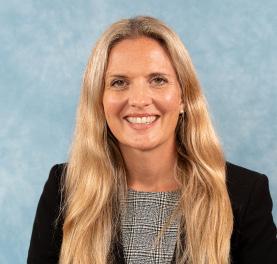
Dr Arjan is the Assistant Academic Year Head - Sixth Form. If you would like to discuss any issues regarding academic life in the Lower Sixth - including A-Level choices, transition into the Sixth Form and your academic progress through the year, please do get in touch with her. Her teaching room (L4) is in the Science Building and she is contactable by email at sarjan@bedfordschool.org.uk
In-house expertise at Bedford School involves all staff, of course, coupled with a core team of specialised staff working in collaboration with the Director of Careers and Higher Education, Mrs Mel Lincoln. Mrs Fox-Johnson oversees the UCAS process, including applications to competitive courses. Mrs Straw supports boys making degree apprenticeship applications and exploring international study options. Appointments are made by email: careers@bedfordschool.org.uk. Working out of B10, near the Great Hall, the Careers team will support you in all your ambitions and in all you do.

Our Beyond Bedford programme maximises the school’s ethos of integrity, responsibility, curiosity and endeavour by providing you with the selfawareness, confidence, breadth of experience, opportunities and networking skills to make informed and confident decisions about the options available to you and, ultimately, your future beyond school.
Outstanding careers and UCAS provision at Bedford School are integrated into the curricular and cocurricular life of the school, enabling all Bedford School Sixth Form boys throughout their school and university years and indeed their professional

careers to access exceptional, tailored professional experience and advice.
Bedford School has retained the national Quality in Careers Standard using the Career Mark approach and holds Career Mark Gold for commitment to continuously maintaining the standard.
Beyond Bedford is embedded into every strand of school life and encompasses the use of in-house expertise and external organisations such as Unifrog, an integrated careers platform, My FutureChoices, the CDI (Career Development Institute) and of course UCAS. We are lucky to have networking opportunities through the Old Bedfordians Club who run the annual careers convention, as well as the valuable support of current and past parents, and over 70 clubs and societies in school to promote learning agility.
“We
wanted to say a very big thank you for all your support with getting our son through school and into Uni - a huge achievement and no small effort, and we are extremely grateful! You definitely went ‘above and beyond’ to keep him motivated, focused and accountable, as well as arranging for him a wonderful work experience that he thoroughly enjoyed and appreciated.”
By the time you leave the Sixth Form, you will be equipped with the crucial skills and qualifications to apply to the dynamic and competitive Russell Group and Top 30 universities, degree-level apprenticeship routes, and international pathways in the US and the EU.
The whole school use of Unifrog enables you and staff to maintain an overview of your involvement in school life and to ensure you maximise the wealth of opportunity available at every stage of the Sixth Form. You can record school activities, hobbies, out-ofschool achievements, and experiences, include referees, build competencies, and create CVs. In the Lower Sixth, you use Unifrog with additional features to research post-school options, investigate apprenticeships and complete MOOCS. You will also have a 1:1 interview with the Director of Careers and Higher Education in your first year in the Sixth Form to help signpost and plan your journey Beyond Bedford alongside MyUniChoices, a psychometric university choices tool, quiz, and information platform. In the spring and summer term of the Lower Sixth, you will work on your personal statements for UCAS and narrow down courses.
Those applying for Degree Apprenticeships will receive application advice and interview preparation through the Degree Apprenticeship Academy.

“I
“I
would like to say a big thank you to you on behalf of my family and I for supporting me through my endeavour in going to university. From your wise words of wisdom to your amazing guidance, you have really blessed me and I don’t think I would of got into KCL without your help.”

just wanted to send this email today to say thank you very much for all your help with university and apprenticeship applications. I have gained much experience that would be extremely useful later on in life.”
NEWCASTLE
Agri-Business Management
Biomedical Sciences
Chemistry
International Business Management
Politics and International Relations
DURHAM
Business and Management
English Literature
HERIOT-WATT Engineering
MANCHESTER
Law
Mathematics
Modern History with Economics
Modern Language and Business and Management
LIVERPOOL
Accounting and Finance
Business Management
Communication, Media and Politics
International Relations x2
ABERYSTWYTH
International Relations
SWANSEA
Economics and Finance
CARDIFF
Business Management (Marketing)
CARDIFF METROPOLITAN Sport Management
EXETER
Business and Management x2
PLYMOUTH Architecture
FALMOUTH Architecture
General Engineering
International Relations
Law
Philosophy and Theology
Philosophy, Politics and Economics
Politics and International Relations
YORK
Accounting, Business Finance and Management
LEEDS
Business Management
LANCASTER
Business Management x2
Marketing Natural Sciences
BIRMINGHAM
Computer Science
Mechanical Engineering
ASTON Medicine
COVENTRY
Software Engineering
READING
BATH
Accounting and Finance
Aerospace Engineering
Biology
Business x2
Computer Science and
Mathematics
International development with Economics x2
Mathematics
Pharmacy
Philosophy, Politics and Economics
Sustainability and Environmental Management
LEEDS BECKETT
Business Management with Finance
Journalism
Music Technology
Sport Business Management
SHEFFIELD
Architecture
Biological Sciences
Computer Science (Software Engineering)
NOTTINGHAM
Computer Science
Criminology
Modern Languages with Business
NOTTINGHAM TRENT
Biochemistry
Business x2
Business Management and Entrepreneurship
Product Design
Sound Engineering and Audio Production
LOUGHBOROUGH
Business Economics and Finance
Economics
Electronic and Electrical Engineering
Management x2
Marketing and Management x2
Material Science and Engineering
ANGLIA RUSKIN
Zoology
CAMBRIDGE
Computer Science
OXFORD BROOKES
Business and Finance
International Business Management
Quantity Surveying and Commercial Management
CITY, UNIVERSITY OF LONDON
Computer Science
Economics with Accounting Finance
IMPERIAL, LONDON
Biochemistry
Materials Science and Engineering x2
Physics with Theoretical Physics
KING'S, LONDON
Agricultural Business Management
History and Politics
Philosophy, Business and Ethics
Real Estate
SOUTHAMPTON Economics Geography
Politics and International Relations
Sport (Sports Performance)
BATH SPA
Creative Music Technology (Games and Interactive Media)
QUEEN MARY, LONDON
Accounting and Finance
Biomedical Sciences x2
Financial Mathematics
ROYAL HOLLOWAY, LONDON
Computer Science
UNIVERSITY COLLEGE LONDON
Arts and Sciences
Chemistry
Computer Science x2
Electronic Engineering
English
Management and Modern Languages
LONDON SCHOOL OF ECONOMICS
Mathematics and Economics
SUSSEX Psychology
Earth Sciences
Economics
Fine Art
Information Management for Business
WARWICK
Accounting and Finance
English and Classical Civilisation
Global Sustainable Development
Modern Languages
Philosophy
Politics, Philosophy and Law
1. Read and respond to the feedback you are given.
2. Address misconceptions/ misunderstandings early. Ask questions.
3. Take pride in your notes and the presentation/storage of work.
4. Make independent notes in lessons. If given materials, try and explain concepts/ ideas in your own words as well.
5. Make your notes revision friendly now. Use colour/ highlighters/ annotate books/ make key points in large print on the margins of your handouts.
1. Practise retrieving information regularly and over time. See the link on the 6 strategies of learning.
2. Redraft after you get feedback. Rewrite a paragraph or short answer and ask for your teacher to check it.
3. Join academic societies and extend your interests.
4. Use the resources on Pupil Link and in the library effectively (including Hachette Magazines available via the Library’s online resources). Use your BSIP/Extended Essay to improve your study skills and develop a passion for the subject.
5. Involve yourself in opportunities to tutor younger boys in the school: there is clearly a benefit for you and them.
USE Hachette Magazines available via the Library’s online resources
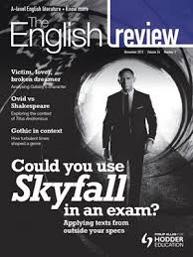





Listen to TED talks on your phone on the train or bus
TED talks are all about delivering important messages in short and powerful presentations.
Today it covers topics from science to business to global issues — in more than 110 languages.
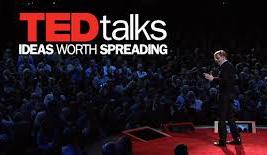
Have a look at the conversation.com
Art & Culture, Business & Economy, Environment, Energy, Health & Medicine, Politics & Society, Science & Technology and….Brexit!


Clough et al (2002)
Peter Clough’s research on mental toughness has been adapted primarily for the sporting world.
Do you see challenge as an opportunity for development or a threat?
Dweck (2007)
Carol Dweck’s research suggests that the beliefs adopted by a young person can have a significant impact on success.
Do you have a ‘fixed’ mindset or a ‘growth’ mindset?
Up-to-date information can be found on Pupil Link each term on the wide range of academic and co-curricular societies and clubs on offer.
These include societies and clubs such as:
Weights Chemistry Society Christian Union
Creative Writing Society Strength & Conditioning Media Club
Law Society
Linguistics Society
Art History
Physics and Engineering Society
Geography Society
Warhammer Society Model United Nations
Water Polo Jazz Orchestra
Choral Society Rifle Club
Technical/ Lighting Club Dance Band
Entrepreneurship Society Debating Society

...and beach volleyball!

In the Sixth form, all boys are encouraged to fully participate in all of the opportunities the Art department has to offer. Attendance of the weekly after school life drawing class is expected as drawing is key and critical to overall success particularly for those considering an art related degree.
The weekly Art History class is an opportunity to gain a greater insight and understanding of major works of art and architecture throughout history and for some boys this has led them to choose Art History as a degree.
The Gilbert Lloyd lectures by visiting artists and art historians are another opportunity for boys to expand their knowledge and understanding.
The weekly Art Society actively encourages boys to do talks and presentations about things they are interested in alongside talks by outside speakers, while the Architecture Society is a mix of practical
sessions and talks to prepare for architecture degree applications.
Using studio spaces outside of allocated lesson times is actively encouraged and recommended to ensure ambitious and exciting work so critical for long term success.
All Sixth Form boys are encouraged to get fully involved in our Drama activities throughout the year.
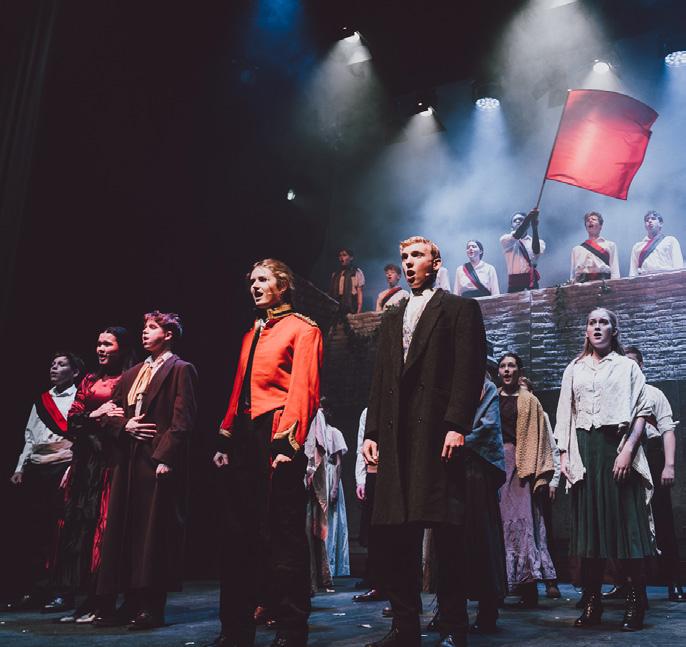
Our Drama Society runs every Friday lunchtime and we invite some guest speakers each week and also encourage members to lead lectures and practical workshops. We also hold an academic Drama lecture every term in the Quarry Theatre.
In addition to clubs and the Drama Society, we have major school productions that are open to all boys. Audition information for all forthcoming productions will be posted in the Upper Bulletin.
The Drama Technical Club runs every week and students should email Mr Laidler if they wish to join.
You can also have LAMDA tuition in Public Speaking, Acting, Shakespeare, Verse and Prose, and Reading. These exams give you speech writing and performance skills as well as additional UCAS points.
All boys are encouraged to get fully involved in the musical life of the school in the Sixth Form. There are a large number of musical ensembles which are open to all boys who play an instrument. In some cases membership is by successful audition.
All boys regardless of academic discipline are invited to attend our academic music society, the Adrian Boult Society, which runs regular meetings addressing the impact of music in society and culture.
There are weekly lunchtime concerts which boys can perform in or simply attend to support their peers.
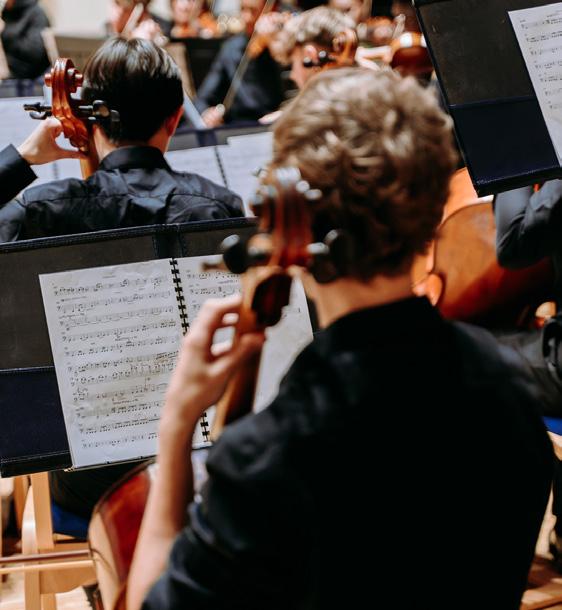


The ability to speak in public and debate issues in school, university or in the workplace are vital.
There are a number of ways you can get involved with public speaking and debating:
You can simply come along and be part of the audience - submitting questions and ideas from the floor. Propose a motion to be debated or be the proposer or opposer of any motion. The Debating Society meets four times a term in the Mem Hall.
Taking place in the autumn term, you can represent your house on the subjects given. Before this the debating society will be offering advice and training to make sure you are in top condition.

The school has had great success in over the past few years and are extending the range of competitions we enter. This offers the chance to discover British Parliamentary style and Mock Trials as well as Cambridge and Oxford Union Debating. Ideal for Oxbridge, Law or Politics students.
We offer exams in public speaking in 6th Form. With a potential of up to 30 UCAS points, you will learn how to write and perform speeches on a number of different topics - these can be the topic you are already researching for your BSIP. As well as in a variety of styles. This does incur an extra cost.
If you are interested in any of these email Miss Fowler at FFowler@bedfordschool.org.uk

Managing your time and organising workload can be a challenge with A-Levels and BTEC, studying in greater depth than GCSE and learning how to take effective notes and plan written work to include all the detail you want to can be a new skill.
In addition to study skills and clinics, the Academic Support department can offer some help if you feel like you are struggling or have a particular skill that you and your teachers feel needs improvement.
It may be organised that you come into the department on a study period for a few sessions to go through work or to improve with techniques.
Ms Saddington is our new Director of Academic Support and can be contacted by emailing: rsaddington@bedfordschool.org.uk
One of the great strengths of our school, founded on the house system, is our community. Throughout your time in the Fifth form you will be part of a house and a tutor group that includes boys from years 9-13.
Within this structure, your Tutor and Housemaster are there to support, encourage and challenge you to make the most of your time in the Sixth Form. They are a great source of advice and will always be happy to make the time to talk through any issues that arise, whether academic or otherwise.
Alongside your Tutor and Housemaster, some teachers have special training in dealing with Safeguarding, Child Protection and difficult issues, these include Mrs Mellor, Mr Everitt, Mr Marriott and Miss Swallow.
You can also arrange to talk to Mr Baldock or Mr Hodgson. You can email them directly or ask Ms Elsby in Room A2 to make an appointment.
Currently housed in the Galbraith Building, the archives are a large collection of memorabilia, documents books and photographs, both physical and digital, and include the entire Ousel archive, dating back to 1876. They are a good resource for research, and we welcome boys who may wish to explore the archives further.
Further information can be found on the Archives site where you will find links to the Archive catalogue and Bedford School Digital Archive.
For more details email archives@bedfordschool.org.uk
Head Boy 2024/25
1. Be proactive. Go and seek out opportunities actively rather than waiting for them to find you.
2. Push yourself out of your comfort zone: you can’t learn if you stay in your comfort zone. The best way to do this is to get involved with volunteering!
3. Use your teachers! They are there to help you and they will be your biggest support when looking to extend yourself academically.

‘You can’t learn if you stay in your comfort zone.’
Tanay Rai

Use this fresh start well, creating new, improved habits and go over work content, consolidating so that missed understanding doesn’t build up over your A-level course.
James Pinkney
When you are struggling in class and you may not have the confidence to ask there and then, take the opportunity to speak to your teacher after and ask for the help you need. The teachers are there to help you and want you to ask them if you need it. I realised this later on in the year and it has really helped improve my learning and reassure me I am on the right track to succeed and get to where I want to be by the end of my time at the school.


Daniel Hudson
Make sure to get stuck into clubs and co-curricular activities early as the year goes quick and this will be useful for UCAS. Enjoy the year, but make proper and reliable revision resources as you progress as it saves you time not having to go back at the end of the year to make resources, making life easier.

You need to take an active interest in your subjects. You must engage with co-curricular activities that relate to your chosen subjects, allowing yourself to both establish further knowledge within the subject, but also providing yourself with the platform to fully enjoy the subjects you have picked.
Alfie Redfern
Use your study periods (not free periods) wisely, use it to ensure you stay on top of prep, to catch up on work you’ve missed and to revise for block tests throughout the year.

A
wealth of opportunities are granted to you in Lower Sixth; take them, you never know where they will lead you.


If there’s only one thing to remember then it’s super-curriculars, they’ll be paramount to your many successes.

Focus in lessons and everything else is easier. EoY exams, prep, more time for sport and co-curriculum.
Make sure to get things right from the go. You don’t want to have to relearn something because you didn’t ask questions when you were struggling to learn it
The BSIP programme involves Lower Sixth A-level students producing a 1500 word essay and delivering a short presentation on a subject of their choice beyond the curriculum.
All Lower Sixth students will have taught sessions before beginning independent research for either the BSIP or EPQ; boys are encouraged to access the Library’s many resources.
The aim is to offer boys an opportunity to extend their learning beyond the syllabus and explore their wider academic interests while developing research and critical thinking skills. This is valuable in its own right but there is also an opportunity for boys to showcase the qualities universities admire: a self-starting approach to research; a genuine academic interest; good work organisation and referencing skills; experience of finding and evaluating resources and uncovering rival interpretations; an ability to develop and present a line of argument in response to a research question, and to do so with reference to a wider body of work.
Each year sees a tremendous array of essays on a great variety of topics ranging from the Japanese memorialisation of history to the likely future role of Artificial Intelligence. Essays have been written on homochirality, cellular ageing, allergies, malaria protection, ocean life, gender politics in Anglo-American musical
theatre, healthcare systems in the UK and USA, the ethnics of superheroes, and on fascinating historical topics such as the London sewers and the Bedford Highlanders.
There is a BSIP prize and a ‘Highly Commended’ shortlist, acknowledging the best essay and presentation work. Recent winning essays have focused on: quantitative easing; space medicine; the fall of Ancient Egyptian civilisation; perceptions of the Soviet High Command in World War Two; the inter-nationalist view on Globalisation; the influence of Formula One and the Mathematical Odyssey of Homer Simpson.
Sixth Form Induction: Part Two
• Sixth Form academic study
• Leadership opportunities – Ivy House/ Ready2Lead
• Community Partnership
• Objective setting
Either
EXTENDED PROJECT QUALIFICATION
Level 3 AS qualification (100% Internal Assessment A* to E) Requires around 90 hours independent work.
• Demonstrate academic extension beyond A-level subjects.
• A 5000-word report and a formal presentation OR
• An artefact with a shorter written report and a formal presentation.
• Production Log demonstrating planning, management and evaluative skills.
• Unifrog
• University admissions
• Choosing university courses
• Personal statements
PROJECT WORK TAUGHT CONTENT:
• Academic research skills
• Research methods and ethics
• Research workshop delivered by the school library team
• Source evaluation
• Planning
• Project management and reflection
• Academic writing
• Referencing (not plagiarising!)
BEDFORD SCHOOL INDEPENDENT PROJECT (BSIP)
• 1500 word essay on a subject of your choice, plus a short presentation OR
• Piece of competition work for an external competition or internal competition/publication or society prize, plus a short presentation.
• Beginning a UCAS application
• Student life
• Interview skills
• Degree apprenticeships
Some boys complete an EPQ. Externally administered and accredited by AQA (Level 3), the EPQ has grown increasingly popular over the past decade.
It is a major piece of individual project work in which candidates have the opportunity to explore a topic or question that is of particular interest to them, deepening their understanding, broadening their critical thinking and reflective abilities, and widening their perspectives.
EPQ work may be submitted in the form of an artefact; projects have included the production of sound effects and the design of a stage set in the Quarry Theatre, and a superb self-portrait inspired by Van Gogh, Monet and Redon) or, more commonly, a 5000-word dissertation.
Creativity, originality and an inter-disciplinary approach are encouraged. Boys have carried out Dowsing experiments, visited Chinese villages to investigate what happens to children left behind by urban migration, surveyed their peers on US presidential candidates, explored the origins of zero and applied mathematical modelling to calculations on the current strength of terrorist organisations.
Aside from learning how to plan, manage, deliver and evaluate substantial research projects (AQA expects this to take 90 hours of independent work in total), the EPQ, like the BSIP, allows boys to take pleasure in deep
reading and effective writing. It is tremendously rewarding to see boys develop their own style and write with confidence and authority on topics they have discovered for themselves. In the extract below, a student who had become interested in the blurred boundaries between fiction and non-fiction, crafts a literary opening to his theological study of the Great Schism of 1054:
When the 8 a.m. Mass on Saturday, 16th July 1054 was being prepared in the Hagia Sophia in Constantinople, congregation and clergy alike were gathering when three strangersPapal legates - entered the Church. Passing through the nave, they made their way to the high altar, where they stopped to address the congregation in a few words of Latin, or ill-spoken Greek (the death of bilingualism a product of the mutual disrespect between the two Empires). They placed a document upon the altar and went back to the doors. Then they said aloud the words: “Videat Deus et judicet!” and with that they left the building. The letters, upon examination, proved to be a bull of deposition and anathema directed against the Patriarch himself, inducing the Schism of the Roman Catholic and Greek Orthodox Churches. However, as we consider this apparent turning point, we must do so against the backdrop of earlier events, with a view to better defining whether non-theological factors were the primary cause of the divorce of East and West.
A selection of previous EPQ titles:
How to disappear? (and the technologies that will be used to find you)
To what extent is blockchain technology the future of a distributed economy? A study of how this peer-topeer decentralised ledger has the potential to benefit society.
Why do cells age? A literature review into the cellular ageing process.
To what extent was the 2008 Financial Crash inevitable? An economic study into the causes of the 2008 financial crash and the extent to which the systemic flaws in the financial sector made failure inevitable.
To what extent did Hugo Chavez’s economic management of Venezuela during 1999-2013 contribute to the ongoing Venezuelan economic crisis?
“We came, we saw, and we took possession. We found it good.” A study of the Bedford Highlanders and their social, economic and cultural impact on the Bedford Community between August 1914 and May 1915.
“Lab-grown meat is more environmentally sustainable than real meat, but its impact will be limited by regulation, consumer acceptance and technology”. Discuss.
Are we on the verge of a sixth ‘Great’ Mass Extinction? A literature review of research and data investigating climate and extinction events from the Ordovician Period to the present day.
Find your passion, be creative and test yourself to produce a great piece of research on an original topic. This could be the start of a new direction in your academic life. Students will learn more about the EPQ in timetabled lessons in September of the Lower Sixth.
To empower a fellowship of students with the confidence, knowledge, and aspirations to excel beyond Bedford School.
We believe students should have the time and opportunity to engage in super-curricular activities, enabling them to develop a deep understanding and passion for their subjects of interest. Floreat is an academic program of erudition in which our most able pupils are mentored by subject specialists in key skills such as public speaking, academic writing, leadership, and teamwork. This mentorship encourages their natural curiosities to flourish and prepares them for a highly competitive world beyond Bedford School.
As part of the Floreat Mentorship Scheme, students are assigned to experts in various fields, including engineering, entrepreneurship, medicine, law, linguistics, mathematics, pharmacy, and science. Each mentor meets with groups of students to extend their subject knowledge and enhance their interpersonal skills. Floreats also receive support with interview preparation from their mentors.
Students have access to the Bedford School Super Curriculum and are required to complete at least three activities per academic year. These activities are added to their student portfolios on Unifrog, supporting the UCAS application process.
Floreats also serve as subject ambassadors, supporting teachers and departments with events, societies, assemblies, blogs, and more. Potential candidates are required to submit a letter of interest and interview for the role.
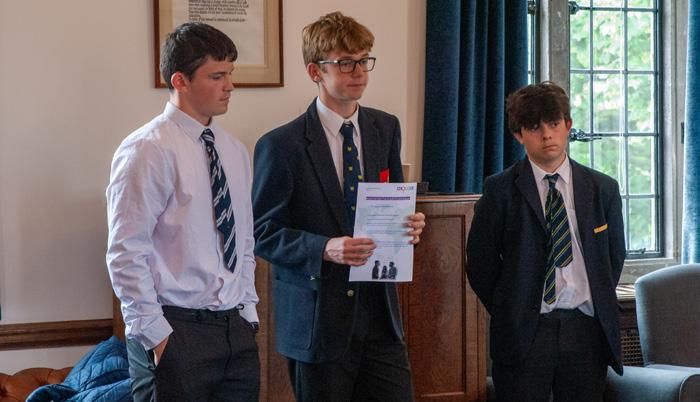
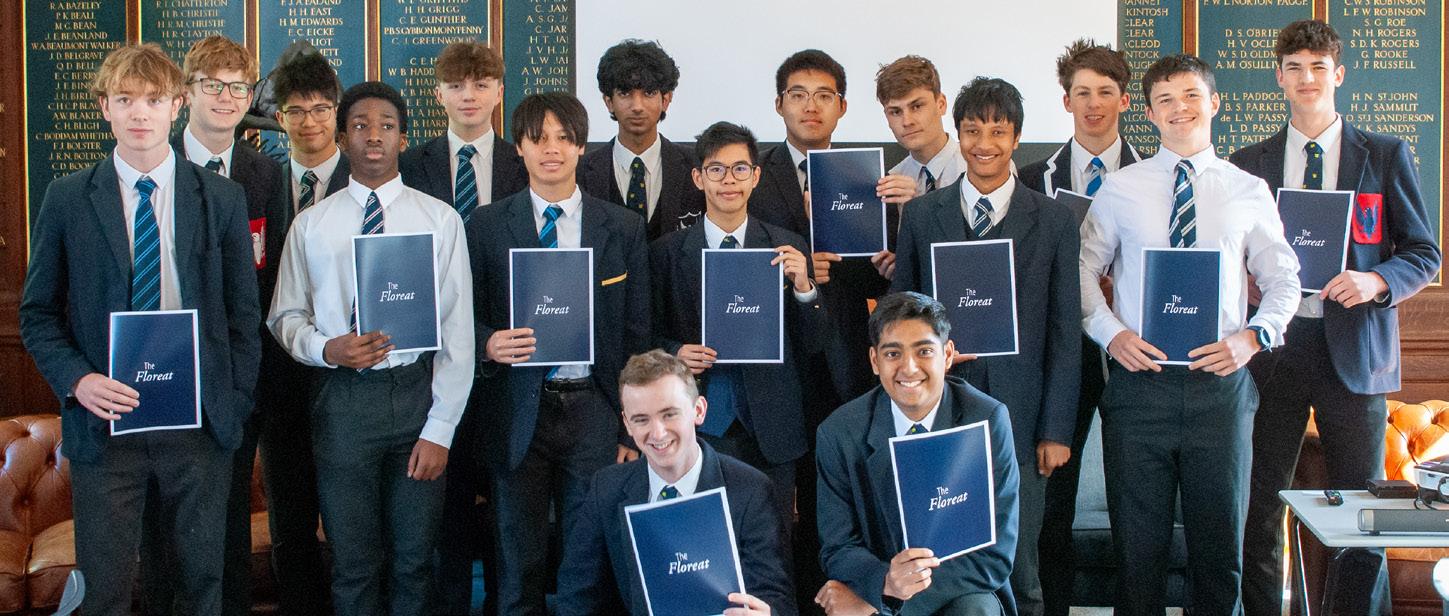
As a school, we aim to engage fully with the world around us, and especially with our local town, at an individual and institutional level. In the Lower Sixth, pupils have the opportunity to take part in the Community Partnerships Programme, where they build up relationships with people in our local community in a variety of settings. For example, during last year’s programme, boys worked with children in local primary schools, with older people in care homes and in the charity sector, for example at Riding for the Disabled.
The aim is that you will create a partnership with the people that you are working with. Your help will benefit them and the experience and skills that you gain will benefit you.
How do I take part if I am taking A-Levels?
• Boys studying A-Levels may opt to begin a community placement in September, and these will be fitted into a free point in their week or a lunchtime.
• If a boy decides to discontinue their fourth A-Level, they will be required to begin a community placement of their choice.
What is the weekly time commitment?
• You would be required to spend around 45 minutes at the venue and so, with travel time, this may be around one hour or a little longer.
What sort of things did boys do last year?
• A huge variety, for example: teaching Mandarin, Latin, Maths in primary schools; helping pupils with reading; playing the piano for a school choir; running a football and badminton club; running a multisports club; running a guitar club; playing music and singing at care homes; playing boards games and conversing with the elderly; helping at a stables to give disabled people access to ride horse.
I can think of a different activity – is that allowed?
• All feasible activities will be considered, please contact Mr Prior (cprior@bedfordschool.org.uk) for further details.


What are the benefits of taking part in this programme?
1
Though faced with sometimes challenging situations, many people ultimately find volunteer work empowering. While working on solutions to these problems, you have the chance to see how your efforts can help improve the lives of others.
Working on a project that embodies your values also helps to boost self-esteem.
A teenager’s social circle typically consists of family and school friends. Volunteering gives you the opportunity to meet people outside of your usual circle, some of whom may have a positive impact on your future. You will also learn to relate to people from a wide variety of backgrounds and generations.
When selecting an opportunity, you can volunteer in an area where you have some interest. Plus, volunteering can impress a future university or employer. It indicates that the individual has empathy for others, has gained some real-life experience outside of school and is prepared to step outside of their comfort zone to achieve goals.
4
Volunteering also gives you an opportunity to experience situations that occur in the workplace. Volunteer work is certainly a testament to a person’s character that he or she is willing to work to bring about change.
Head of School ‘Senior Four’ Monitor
Deputy Head of School Monitor
As Sixth Formers you are in positions of leadership within your tutor group, house and wider school community simply because of your seniority. The example you set will help to shape the culture.
Sometimes, such leadership is formalised into roles within the house such as Head of House and other Senior Team positions; however, never underestimate the impact that positive action can have - take the opportunity to “be the change you want to see” and, chances are, you will find yourself leading others in truly meaningful ways.
Informal leadership within the house could include being a proactive member of the tutor group who looks out for the younger boys, leading a tutor time, offering to lead a house assembly, taking a leading role in our house-mentoring scheme (see “Peer Mentoring” section) etc. If you look, ask and act, there will be the opportunity to develop as a leader!
All the clubs and societies at Bedford School are run by you: the Sixth Form, for your fellow pupils (with some support from staff). Leadership by Sixth Formers is key to the success of each club and society.
Leadership roles include president, vice-president, secretary, and in the CCF, non-commissioned officers. However, leadership opportunities are not limited to these roles, you may also wish to consider delivering talks and lectures or offering workshops.
You can also establish new clubs and societies to explore further areas of interest to you.
In addition to leaderships roles within the creative arts clubs and societies, you are also encouraged to consider taking on leadership responsibilities by directing plays and leading ensembles.
Leaderships roles are also available in all school sports; both major and minor, as detailed below.
Cricket 1st XI Captain, 1st XI Vice-Captain, 2nd, 3rd and 4th XI Captains
Hockey 1st XI (and leadership group) and team captains
Rugby 1st XV (and leadership group) and team captains
Rowing Captain of Boat Club
Minor Sports Captains

The Ivy House Award is an exciting new initiative that brings comprehensive personal and professional learning to young people. It has been created by Ivy House, whose team have decades of experience of working with major organisations such as Aviva, RBS and Marks and Spencer, to develop their emerging leaders and talent.
The Award combines digital content that includes over 40 videos, a series of quizzes and psychometric tools with bespoke exercises and discussion topics. Over two terms, learners explore who they are and the life they want to create, and start to develop critical professional expertise to support them in achieving their goals.
Participation will mean an individual log-in to the digital platform, a digital journal and the opportunity to participate in discussion groups.
As one of the first schools in the country to offer The Ivy House Award, we have been providing this opportunity since 2019 and have seen its significant impact on students during their Sixth Form. This video tells you a little more about the award, and you can hear from students who took part last year here.
Currently we are able to offer The Award free of charge; however, places are granted on the basis of an application. To apply for a place you should create a one minute video or write a short letter of application explaining why you would like to take part and what you hope to get from the Award. Applications must be submitted to Mr Jones (bjones@bedfordschool.org.uk) no later than Friday 18 September.

What is Ready2Lead? Running since 2019, Ready2Lead? Is a conference for Lower Sixth students designed to empower your inner leader and to work collaboratively with others in order to change the world around you in the way that only you can.
The conference, originally imitated by Bedford School, is organised by staff and students from local schools in conjunction with The Harpur Trust, with all Sixth Form providers in the borough taking part.
Who is Ready2Lead? for? Anyone who is serious about developing themselves and who is keen to learn how to make a positive difference to others in Bedford and beyond.
The conference will cost you some time and commitment. The conference involves three sessions - 1st October, 5th November and 10th December -
plus time to develop a project focused on making a difference in the local community. Your group will have the opportunity to work with a mentor throughout. The conference culminates with a showcase of projects from all the local schools, with guests including local dignitaries, community leaders and professionals. The best projects will have the opportunity to engage with further mentor support and take their idea forwards into Ignite Bedfordshire - Empowering young entrepreneurs, and engage with our local entrepreneurial ecosystem.
If you are interested in being involved in Ready2Lead? 2024, applications should be submitted by email to cgeneve@bedfordschool.org.uk by Friday 20 September with a brief explanation of why you would like to be involved in the conference, and look out for a briefing from Ms Geneve early in term to provide you with more information.
In the Lower Sixth all boys are trained as Peer Mentors, with the intention of giving them a bit more responsibility and enabling them to offer support to our new Fourth Form.
The aim of the Peer Mentoring programme is to:
• To ensure a smooth transition for boys at the start of Fourth Form
• Provide support for boys feeling isolated and lacking self-confidence.
• Enable Fourth Formers to manage time, plan and organise work.
• Establish good communication between Fourth Formers and aid their integration into the school and house communities.
Following an initial safeguarding training session led by a senior member of staff, there are two training sessions/workshops led by Mandy Rutter, an external trainer who is an independent mental health consultant. She focuses on all aspects of listening skills training and explores through a range of scenarios how to guide our new Fourth Form boys in particular, supporting them in making a smooth transition into the Upper School.
For the Fourth Form boys, we hope that it will:
• Increase their social and academic confidence
• Develop their communication, study and personal skills
• Allow them to learn from the experience of others
• Identify goals and establish a sense of direction
• Make new friends across year groups.
For the mentor, we hope it will:
• Improve communication and personal skills
• Develop leadership and management qualities
• Reinforce own study skills and knowledge
• Increase confidence and motivation.
Talalay Science Prize
For the boy who makes the best presentation of a scientific topic of their choice demonstrating originality, creativity and presentation skills
Grevelink Memorial Exhibition for Science
Awarded to the best senior student of Biology
H.S. Aldred Memorial Prize for Science Projects
Awarded to a senior boy for their efforts to promote Science
Physical Science A-Level Prize
Awarded to a senior boy for the most meritorious overall performance in Chemistry and Physics
W.H. Allen Engineering Exhibition
Awarded to a senior boy demonstrating the best capability and interest in Engineering
K. Revis Prize for the best Physics Investigation
Awarded to a senior boy for the best Physics Investigation
Eric Robinson Memorial Prize for Chemistry
Awarded to the best senior Chemist
Rollinson Scholarship for Science
Awarded to selected boys who have shown the most effort and endeavour in encouraging and developing the image of Physical Sciences in the school and who intend to study Chemistry, Physics or Chemical Engineering at a British University
Radclyffe Hall Prizes for Biology Senior
For the boy with the best A-Level exam performance
Henry Farrar Memorial Prize for Mathematics
Awarded to a Further Mathematician boy for excellence in Maths at an advanced level
Malcolm Wilson Prize for Mathematics
Awarded to an A-Level Mathematician boy for excellence in Maths at advanced level
Sixth Form
Sixth Form
and Physics
and/or Physics
Sixth Form
Arthur Jones Prizes for Computer Technology
Awarded to a senior boy for the best Computer Science Project
Phillpotts-Sargeaunt Prizes for Spoken English Senior
Awarded to whomever has proved the most articulate and stylish speaker and/or reader in English classes
Fowles Prize for English Essay
For any boy who has produced the best creative writing piece or a discursive essay on a topic of their choice
William James Burr Memorial Prize for History
Awarded to the best senior student of History
Geoffrey Inskip Geography Prizes Senior
Awarded to the boy was has added most to the Geography Department through their enthusiasm for and attainment in the subject
School Prize for Economics
Awarded for academic achievement, consistent performance and excellent attitude over the two year course
School Prize for Business Studies
Awarded for academic achievement, consistent performance and excellent attitude over the two year course
School Prize for Politics
Awarded to the best student of Politics
New College Prizes for Classics Senior
Awarded to the best student of Latin
J. Marsh Prize for Classics
Awarded to the best student of Classical Civilisation
Lower Sixth Modern Languages Essay
Awarded to a boy for the best demonstration of linguistic talent in their Modern languages essays over the year
Page Prize for French
Awarded to an Upper Sixth boy for their effort, contribution and linguistic talent over more than one year
Heald Prize for German Senior
For the boy who has shown the most development and achievement in German, especially in the area of German composition.
Argentine O.B. Prizes for Spanish
Awarded to the Upper Sixth Former who has shown high commitment and all-round excellence
Frank Wilson Technology Prizes Senior
Awarded to the best senior student of Design & Technology
William James Burr Memorial Prizes for Art Senior
Awarded to a senior boy who has achieved sustained excellence and enthusiasm
Norris Prizes for Outstanding GCSE results
For boys with the top GCSE results of their 5th Form year group
Bedford School Independent Project Prize (Essay)
For the L6th A-Level boy who has researched, created and written the best independent project on a topic of their own choice
Tristam Yarde Prize
Awarded for reading in Chapel
The Andrew Lucken Award for Personal Courage
Awarded to a boy who shows or who has shown fortitude and personal strength in the face of adversity or, alternatively, helped others who have experienced such adversity in a notable way
Bill Sohal Prize for Aspiration
For a Sixth Form boy who, whilst maintaining high academic standards, also pursues and achieves excellence in another discipline, showing character and leadership to inspire others
For the boy who has not only gained from boarding but who has given wholeheartedly in a personal and broader capacity to his boarding house and the wider School community
MacCarthy Ray Memorial Prize for Good Work with the CCF
For a Sixth Former demonstrating outstanding work in CCF
Barlen Leaving Exhibition
For a boy who has studied History to a high level and been offered a place at Oxbridge or another top league university to continue the study of the subject
Elger Leaving Exhibition
For a boy (or boys) of outstanding academic ability, defined by receipt of an offer from Cambridge or Oxford Universities
The Young Prize for the Head of School Awarded to the Head of School
The Examinations Department is run by Mrs Debra Martin-Merchant, Examinations Officer. She is the first point of contact for any exam related queries. Her email address is dmartin-merchant@ bedfordschool.org.uk.
The Assistant Examinations Officer is Mrs Sarah Craven. Her email address is scraven@ bedfordschool.org.uk.
The Examinations Office is located above the CCF Building in B21.
The Exams Department has a dedicated area on Pupil Link, our virtual learning platform.
Pupil Link is accessible to Teachers, Students and Parents. Here you will find information on:
• Timetables for internal exams
• FAQs
• Instructions to candidates
• Post results services
• Summer exam timetables
• Details on university entrance tests
• Details of briefings throughout the school year
• Links to exam board websites
Mrs Martin-Merchant holds an exam briefing during the school year to help guide the boys through what to expect during exams and the rules and regulations.
We have a dedicated SENCo responsible for getting access arrangements into the school system. These arrangements may include extra time, rest breaks or use of a word processor.
We have a number of halls that we use to conduct our exams. For internal exams we use:
• The Great Hall
• The Lower Gym
• The Recital Hall
• The Erskine May Hall
• The Memorial Hall
For the actual A-Level exams, these take place in the Sports Hall.
At Bedford School we prepare boys for A-Level examinations in the syllabuses listed right. The Exam Boards that we use at A-Level are:
• AQA
• CIE
• OCR
• Pearson Edexcel
2026 BTEC Specifications:
Entrepreneurship
2026 A-Level GCE Specifications:
(3D Design) 7552
Project Qualification (EPQ) 7993
Something to look forward to . . .




All the school policys can be viewed on the policies page on the school website.
All boys must ensure that they have read the School Rules.
A-Level subjects are taught in ‘blocks’ of teaching time. Periods which are not taught are available for skills classes/independent projects, lectures and for private study.
Lower and Upper Sixth Formers’ Private Study Periods
These private study periods are an essential part of pupils’ preparation for examinations. Teachers expect pupils to use them wisely and will set work on the assumption that they have this time as well as prep time. Whether or not work is set, however, pupils must use these periods to good effect for their own academic purposes if they are to have any hope of achieving grades that reflect their ability. How well pupils use their private study periods will be a major factor in the school’s report on pupils for university or career applications; it reflects a pupil’s maturity and ambition, and ability to work independently.
Private Study: Expectations
Requirement to Register at the Bell Room
! Pupils who have a private study period at the following times MUST register with the Bell Room:
• period 6 on Mondays, Wednesdays and Fridays
• period 1 on a Saturday
Registering all pupils is a legal requirement. A conduct concern will be issued to Sixth Form pupils who do not register with the Bell Room when they have private study periods at these times.
During private study periods pupils may:
P Work in the library. This is a silent supervised study area during the examination months of January and June. At other times it is a quiet work area supervised by the library and academic staff.
P Work in a departmental library/study room (listed below). This gives pupils good access to subject specific books and to staff should they need guidance.
P All Sixth Form boarders with a double study period can return to their boarding house to study.
P Consult with their tutor or with another member of staff, by prior arrangement.
During private study periods pupils must not:
O Pupils must not use these periods for leisure activities, apart from leisure reading. For example, they must not use common rooms for games during study periods.
O No Sixth Form pupil (with the exception of boarders who have permission from their boarding Housemaster) may leave the school estate during study periods and pupils must stay on site until the end of period 8 Monday - Friday and the end of period 5 on a Saturday.
O No Sixth Form pupil should use the day house as a study area unless their Housemaster has given them individual permission to do so, and their name is recorded on the Senior Day Housemaster’s list.
O No Sixth Form boarder should use the boarding house in a single study period unless they have permission from their Housemaster.
Any Sixth Form pupil found not behaving in accordance with these guidelines or not demonstrating the school’s core learning behaviours will be required to register in the library (and work under supervision) until further notice.
Academic warnings will be issued to Sixth Form pupils who do not attend when they have timetabled private study lessons in the library.
For some a stricter routine is beneficial and will be imposed in the best interests of all.
Art – Digital Studio
Biology – L3
Business/Economics – B2
Chemistry – S25
Classics – R8
DT – T9, T12, T14, T15
English – R8
Geography - D16
History – D4
Music – Reading Room & Computer Room
Physics – S11
RE – K3
We value the adult and mature approach of the Sixth Form. The school consider study periods to be vitally important and encourage pupils to use them to develop their independent learning skills.

MASTER’S COMMENDATION
Given for a truly outstanding piece of work, the likes of which we might see only on a handful of occasions a year
COMMENDATION An award given for a piece of work that is particularly noteworthy and may embody one or several of the school values (Integrity, curiosity, endeavour, responsibility) (+3 House points)
MERITS (Merit = +1 house point)
100 merits = Letter home from Headmaster, £50 of vouchers awarded in assembly 75 merits = Letter home from Deputy Head (Academic) and £20 of vouchers awarded in assembly 50 merits = Letter/ email home from housemaster 10 merits = Letter/ email home from tutor (and every subsequent 10)
CONCERN Notifications to pupil, tutor and housemaster. From Sept 2016 four of these will automatically convert in to a warning (-1 House point)
WARNING Notifications to pupil, tutor, housemaster and parents. Two of these on academic or conduct side will automatically convert to an academic/ conduct detention (-3 House points)
DETENTION
These are sat after school and are an hour in length. They involve a meeting with the Undermaster/ Director of Teaching and Learning. A second offence will result in a meeting with the Deputy Head (Academic) or Vice Master (Conduct)
These are given for three detentions in total and triggered by any combination of Academic/ Conduct detentions. These will last two hours and take precedent over all other school activities
After careful consideration and discussion within our community, we have taken the decision to prohibit the use of mobile phones on the school site during the school day (8.00am to 4.15pm) for boys in the Fourth Form, Remove and the Fifth Form, and with restricted use permitted for Sixth Form boys and boarders. During prohibited times phones should be turned off and stored safely
This rule change also aligns with recent government guidance prohibiting mobile phone use in schools, and our wider digital learning strategy (including rollout of school-leased laptops and 1-to-1 devices).
From September 2024, mobile phones must not be used on the school site between 8.00am and 4.15pm. Mobile phones may be used discreetly outside these times, and by Sixth Form pupils in Sixth Form-only spaces in Houses during breaks.
Why has there been a change in the mobile phone rules?
We have taken the decision to further restrict the use of mobile phones following extensive analysis of many studies, as well as feedback from pupils and staff, which indicates that mobile phones can distract young people from human interactions and effective learning. Use of mobile phones can also prevent engagement in the full life of school, for example spending time with friends or accessing lunchtime academic and co-curricular activities. Additionally, the increased use of laptops, including the school-leased devices for some year groups, means that accessing email, tasks and notices can now be achieved through other means. There is also new government guidance that all schools must follow regarding mobile phone use.
What happens if I break the mobile phone rules?
You should expect your phone to be confiscated for collection from the Bell Room at the end of the day, and a Conduct Warning issued. You will be asked to turn your phone off (if on) and the member of staff will act to keep it safe until it can be taken to the Bell Room.
If you need a phone for use outside of the restricted hours (8am to 4.15pm), for example to communicate with home about pick-up, collection from train stations, etc. then you may bring one to school with you, but it should be turned off and kept safe in your bag, locker or other safe storage. Mobile phones are valuable items, and if you have one with you in school, it is your responsibility to keep it securely.
Boarders may use their phones during the day if returning to their own bedrooms, but not in any communal space in the House before 4.15pm. We recognise that many international boys will use their phones to communicate home at break times based on the time zones for their families, and as such they can do so in their bedrooms. Day boys must not use their
phones in any communal areas of the House before 4.15pm, bar Sixth Form pupils who are permitted to check their phones in Sixth Form-only House spaces during breaks.
Why are the rules different for Sixth Form boys?
As part of preparation for responsible mobile phone use after Bedford, we feel giving boys permitted access to their mobile phones within limited times and locations reflects the Sixth Form being a time of increased independence and responsibility.
When can I check emails or prep tasks from teachers?
You should check your emails before and after school, or by using your laptops during break times or study periods.
How can I send or receive an emergency message to my parents, such as a change to pick-up?
Any urgent messages can be relayed through the Bell Room. Otherwise, you can switch on your phone discreetly after 4.15pm to send or receive updates. If you are unwell, the Medical Centre and other relevant members of staff will be able to help, too.
What if I need a phone for medical use?
As with all matters, you should discuss the situation with your Tutor. We want to support everyone’s welfare and in certain circumstances it may be that having discreet access to a mobile phone under supervision for a specific concern is appropriate.
How will I know my timetables?
You are provided with a printout of your timetables and might sensibly store this in your hymn book. Part of preparation for each day should involve checking which lessons you have, and the materials required. You will also be able to access your timetables via laptops at appropriate times of the day.
Can I use my phone on the bus to fixtures or school trips?
Teachers might give permission for personal use where there is no other legitimate activity, but this should never be assumed and you should follow teacher instructions.
What about other smart devices, such as watches?
We expect boys to have notifications turned off during the school day on any device that can receive them. Boys should never be taking photos around the school site, unless instructed by a teacher as part of a lesson. It is worth noting that examination regulations prohibit the use of any smart devices.
Can Sixth Form boys use their phones in department Sixth Form work rooms or in the Library?
No. The change in mobile phone rules is to prevent distractions from effective learning. Any digital work in study areas should be completed on a laptop. Music can be streamed through laptops to headphones.
Why is this policy different to other schools?
Every school makes their own independent decisions to do what they feel is in the best interests of their pupils.

